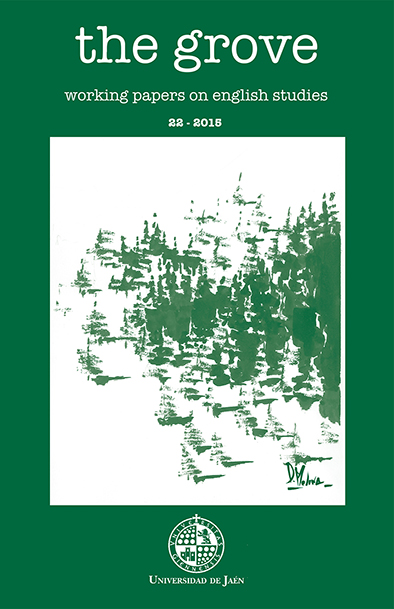“What you do to children matters”: motherhood in Toni Morrison’s god help the child
Abstract
Motherhood is again at the core of Toni Morrison’s last novel, God Help the Child. Morrison deals with one typical African American family, a single mother, Sweetness, with a daughter, Lula Ann. Sweetness is a mixed woman who can pass for white, but becomes exposed as a result of the birth of her blue-black daughter. Sweetness’s internalization of the racist views of a race-conscious America during the 1950s leads her to self-loathing and low self-esteem. Thus, she resorts to authoritarian parenting practices so as, she seems to believe, to protect her child from getting hurt, however, her toxic mothering has dramatic consequences. Lula Ann’s struggle to achieve self-definition requires assuming responsibility for her actions and Sweetness comes to realize that what you do to your child matters.
Downloads
References
Baldwin, A., C. Baldwin, and R. Cole. “Stress-Resistant Families and Stress-Resistant Children”. Risk and Protective Factors in the Development of Psychopathology. Eds. J. Rolf, A. Masten, D. Cicchetti, K. Nuechterlein and S. Weintraub. New York: Cambridge UP, 1990. 257-80.
Billingsley, A. Black Families in White America. Englewood Cliffs: Prentice-Hall, Inc., 1968.
Collins, Patricia Hill. Black Feminist Thought: Knowledge, Consciousness, and the Politics of Empowerment. New York: Routledge, 1991.
Hetherington E., Mavis, and W. Glenn Clingempeel. “Coping with Marital Transitions”. Journal of Marriage and the Family 54 (1992): 368-78.
Hughes, D., J. Rodríguez, E. P. Smith, D. J. Johnson, H. C. Stevenson, and P. Spicer. “Parents’ ethnic-racial socialization practices: A review of research and directions for future study”. Developmental Psychology 42.5 (2006): 747–70.
Jarret, Robin L. “African American Children, Families, and Neighborhood: Qualitative Contributions to Understanding Developmental Pathways. Applied” Developmental Science. 2 (1998): 2-16.
LeClair, Thomas. “’The Language Must Not Sweat:’ A Conversation with Toni Morrison”. Conversations with Toni Morrison. Ed. Danille Taylor-Guthrie. Jackson: Mississippi UP, 1994. 119-28.
Mc Groder, Sharon. “Parenting among Low-Income, African American Single Mothers with Preschool-Age Children: Patterns, Predictors, and Developmental Correlates”. Child Development Vol. 71.3 (May/June 2000): 752-71.
McAdoo, H. P. “Strategies used by Black single mothers against stress”. Slipping through the cracks: The status of Black women. Eds. M. Simms and J. Malveaux. New Brunswick, NJ: Transaction Books, 1986. 153-66.
McLeod, J. D., and M. Shanahan. “Poverty, parenting, and children's mental health”. American Sociological Review 58 (1993): 351-366.
McLoyd, V. C. “The Impact of economic Hardship on Black Families and Children: Psychological Distress, Parenting, and Socioemotional Development”. Child Development. 61 (1990): 311-46.
McNeil, Cheryl B., Laura C. Capage, and Gwendolyn M. Bennet. “Cultural Issues in the Treatment of Young African American Children Diagnosed With Disruptive Behavior Disorders.” Journal of Pediatric Psychology [Online]. 1 July 2001. Web. 8 April 2015. <http://jpepsy.oxfordjournals.org/content/27/4/339.full>.
Minow, Martha. Making All the Difference: Inclusion, Exclusion, and American Law. New York: Cornell UP, 1990.
Morrison, Toni. Sula. New York: Alfred Knopf, 1973.
-------------------. God Help the Child. New York: Alfred Knopf, 2015.
O’Reilly, Andrea. Toni Morrison and Motherhood: A Politics of the Heart. New York: State University of New York Press, 2004.
Peters, M. F. “Parenting in Black Families with Young Children: A Historical Perspective”. Black Families. Ed. H. P. McAdoo. Newbury Park, CA: Sage, 1998. 211-24.
Stonequist, E. H. The Marginal Man – A Study in Personality and Culture Conflict. New York: Charles Scribner’s Sons, 1937.
Tamis-LeMonda. Catherine S., Rahil D. Briggs, Sandra G. McClowry and David L. Snow. “Challenges to the Study of African American Parenting: Conceptualization, Sampling, Research, Approaches, Measurement, and Design”. Parenting: Science and Practice 8 (2008): 319-58.
Taylor-Guthrie. Danille, Conversations with Toni Morrison. Jackson, MS: Mississippi UP, 1970.
Toldson, Ivory A. “Single Parents Aren’t the Problem”. The Root. July 3. 2013. Web. 6 June 2015.
Washington, Teresa N. “The Mother-Daughter Àje Relationship in Toni Morrison's Beloved.” African American Review 39.1/2 (2005): 171-88.
Published
How to Cite
Issue
Section
License
Authors who publish with this journal agree to retain copyright and grant the journal right of first publication with the work simultaneously licensed under a Creative Commons Attribution License that allows others to share the work with an acknowledgement of the work's authorship and initial publication in this journal. Also, authors will retain the rights on their work, even if they will be granting The Grove. Working Papers on English Studies a non-exclusive right of use to reproduce, edit, distribute, publicly communicate and show their work. Therefore, authors are free to engage in additional, independent contracts for non-exclusive distribution of the works published in this journal (such as uploading them to an institutional repository or publishing them in a book), as long as the fact that the manuscripts were first published in this journal is acknowledged.
















